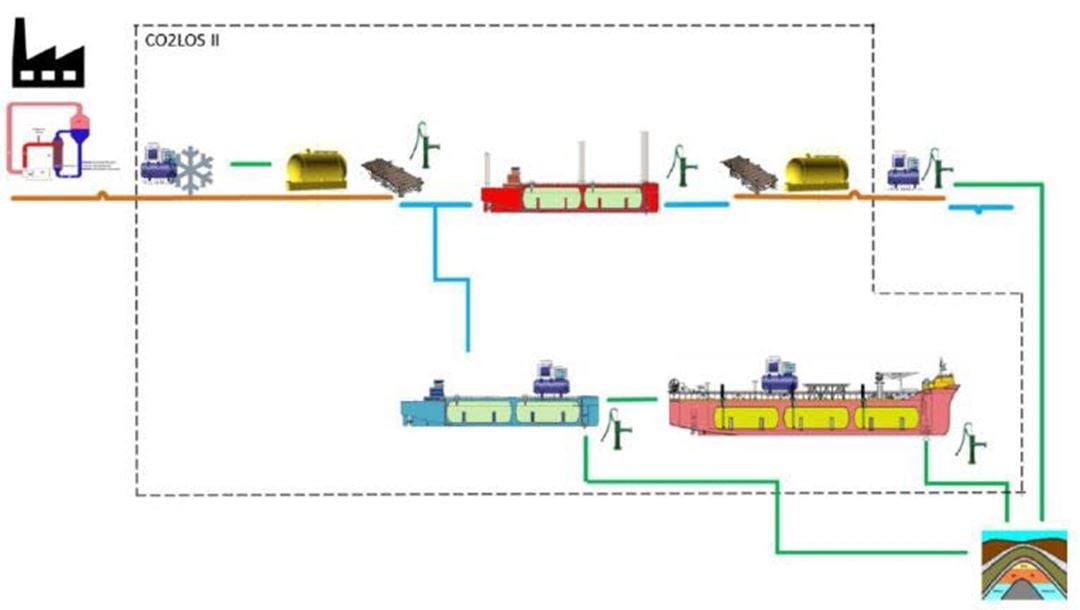
CO2LOS - CO2 ship transport - new solutions
CO2LOS II
Background
Carbon Capture and Storage is addressed by IEA as one of the key technologies of reaching the Paris agreement 2oC goal. In the IEA 2oC scenario 1 gigatons/y CO2 will need to be captured by 2030 ramping up to 5 gigatons/y in 2045. This will require huge logistic operations. CCS/CCU transport has up to now been based on pipelines. Transport of CO2 by ship represents an alternative when pipelines are too expensive due to distance, volume, and depreciation period. Food grade CO2 has been transported with ships for decades, but these volumes are rather small compared to the planned CCS projects.
Battery Limits
The project focuses on the transport part of the CCS chain assuming ship transport with liquefied CO2. CO2LOS II includes pre-treatment (liquefaction) needed before ship transport, but not the capture of CO2 from source, neither is the reservoir part of the project, ref.
Figure 1. Both land based delivery and offshore unloading are being addressed.
Scope
The scope of the CO2LOS II (CO2 Logistics by Ship Phase II) project is to reduce the cost of CO2 ship transportation by utilizing new technology and investigate optimization possibilities in the logistic chain.
The project Report is the public short version of the final report documenting the CO2LOS II project. The report serves as a toolbox summarizing various engineered conceptual technical solutions with an estimate of when these solutions may be applicable for CO2 transport.
The technical solutions will have to be adjusted when a firm CCS project is developed with decisions of volumes, export and import site, transport pressure, location, and characteristics of the reservoir, etc. Acknowledging this, the methodology used for development of the solutions, including logistics, simulations, calculations, analysis, results from discussion with partners and vendors and literature studies are made an important part of the toolbox.
Publications CO2LOS II:
